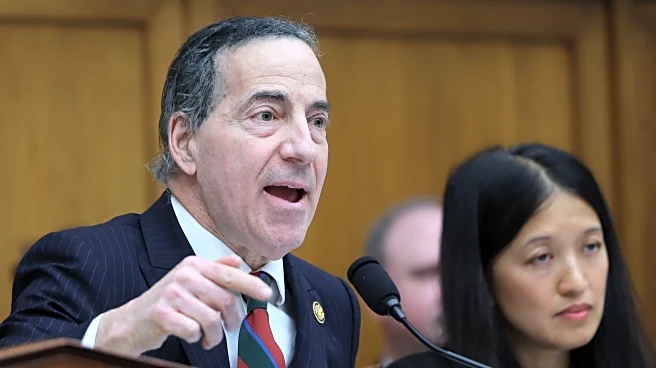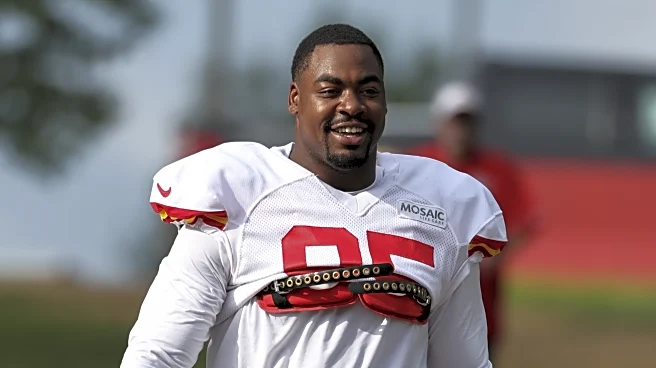What's Happening?
President Trump has proposed a set of NATO-like security guarantees for Ukraine, aiming to ensure the country's long-term security without granting it NATO membership. This move comes after a summit at the White House, where Trump met with leaders from Ukraine, France, Britain, Italy, Germany, Finland, the European Union, and NATO. The proposal includes an international force to police a demilitarized zone between Ukraine and Russia, backed by U.S. air power, and a $90 billion arms deal to bolster Ukraine's military capabilities. Trump has emphasized the importance of a lasting peace, stating that the U.S. and European nations would defend Ukraine if attacked.
Why It's Important?
The security guarantees offered by President Trump are significant as they aim to deter further Russian aggression towards Ukraine without escalating tensions by offering NATO membership. This approach seeks to balance the geopolitical interests of the U.S. and its allies while addressing Ukraine's security concerns. The proposed arms deal could strengthen the U.S. defense industry and enhance Ukraine's military deterrence. However, the move also risks provoking Russia, which has consistently opposed NATO expansion. The situation underscores the complex dynamics of international diplomacy and security in Eastern Europe.
What's Next?
The next steps involve finalizing the details of the security guarantees and the arms deal. President Trump has indicated that a bilateral meeting between Ukrainian President Zelensky and Russian President Putin could be brokered, contingent on Putin's willingness to engage in peace talks. The international community will closely monitor Russia's response, as any objection to the security guarantees could signal continued ambitions in Ukraine. The outcome of these negotiations will have significant implications for regional stability and U.S.-Russia relations.











